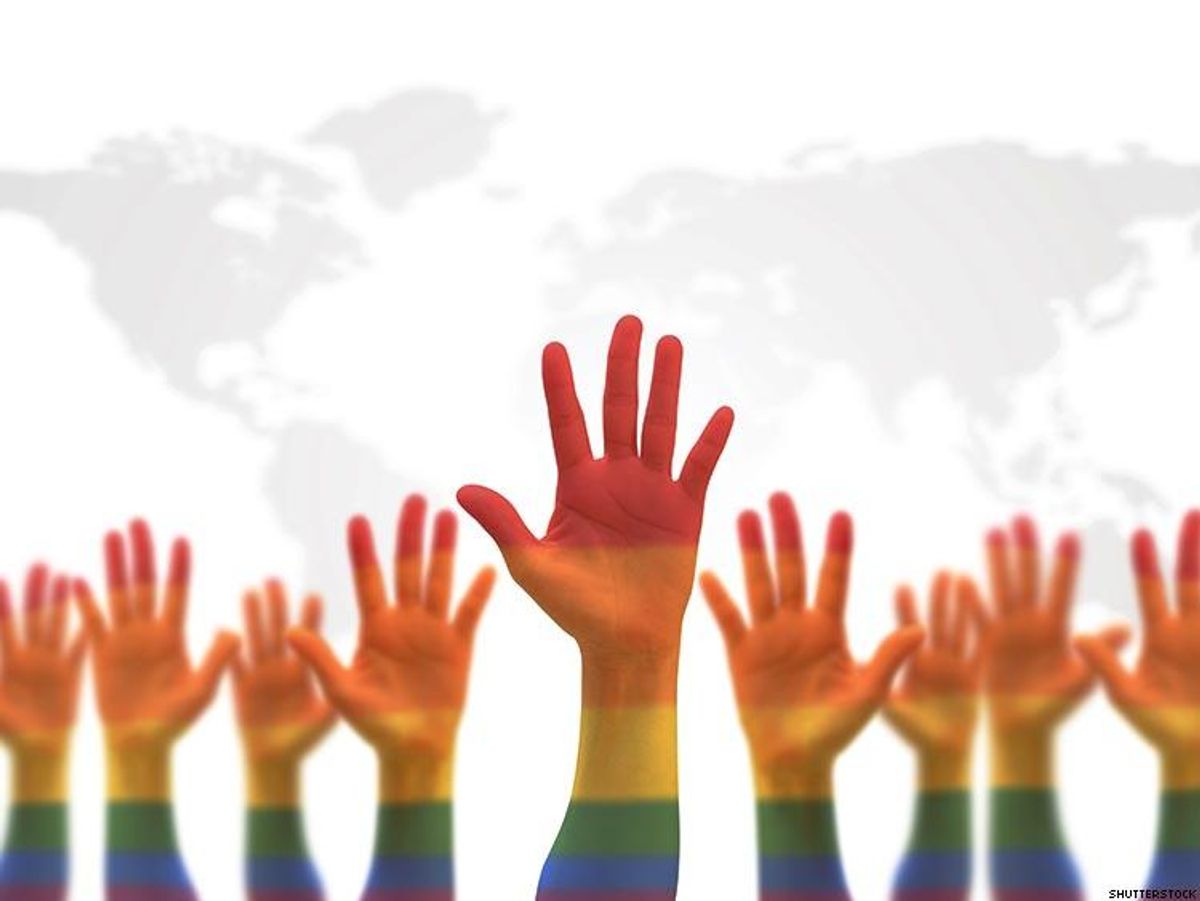Voices
During Pride, Take a Moment to Realize All We've Accomplished

We're living in scary, divisive times. But we have much to be proud of, writes Roberta Sklar.
Roberta Sklar
June 21 2017 2:01 AM EST
October 31 2024 6:45 AM EST
By continuing to use our site, you agree to our Private Policy and Terms of Use.

We're living in scary, divisive times. But we have much to be proud of, writes Roberta Sklar.
After nearly 50 years of struggling for equality, amid celebration of the arrival of marriage equality in the United States, there was hand-wringing and name-calling. Cries abounded in LGBT quarters that "the movement had prioritized marriage" to the exclusion of all else. There were accusations and recriminations against national organizations that they drove the prioritization or came late to the game and claimed the glory.
As a movement we are a group of diverse, cantankerous, agitating, never-satisfied individuals. When some said we need a leader we balked. Leadership, yes; a leader, no! Some said we were too divided; too many unruly, defiant individuals to follow a single hero/ine. Whatever. We accomplished much, squabbling all the way.
Perhaps this is a moment when we can relent in our unrelenting complaints against ourselves to celebrate our national organizations, our state and city groups, our activists, individuals, couples, families, queer spawn, and allies for what we've accomplished together.
Some accused the national organization of coming late to marriage equality, not so -- Lambda Legal was involved from the start, in 1993 in Hawaii filing an amicus brief supporting plaintiff couples, and in 1996 as co-counsel in the trial court. The Task Force was involved in fighting same-sex marriage bans state by state since starting in at least 2003, and its Policy Institute contributed critical opposition research. Freedom to Marry was founded to create a funding consortium and strategy base. Equality Federation state members like Mass Equality, Equality California, and Empire State Pride Agenda engaged state by state.
In city after city, individuals and couples stepped up to say, "Enough, don't ask us to wait." It was certainly a grassroots effort. But it wasn't just marriage equality we were fighting for, or continue to fight for.
As a community, we battled a plague -- HIV and AIDS -- which the government would have refused to address were it not for our efforts. At the national level there was passage of hate-crimes legislation, repeal of "don't ask, don't tell," and LGBT inclusion in the Violence Against Women Act. Antidiscrimination and anti-bullying laws were passed in cities across the country. LGBT families put themselves on the line to gain adoption and parenting rights. "LGBT rights are human rights and human rights are LGBT rights" became official State Department foreign policy, thanks to Hillary Clinton.
We matured to recognize and be a voice on issues of the larger society. We became a force within the immigration reform movement, participating in Black Lives Matter, advancing nondiscrimination on the basis of gender identity, calling for reform of law enforcement policies and prison conditions, health care and economic reform. We entered the fray of local and national electoral politics as voters and candidates.
Religious bodies became more inclusive, thanks to the Metropolitan Community Church, United Church of Christ, More Light Presbyterians, Lutherans Concerned, and progressive Jewish congregations. Courageous faith leaders reclaimed the high ground from those who used hate-filled rhetoric against us.
Issues of gender identity moved from the margins to the center of a national conversation. The role of transgender men and women in advancing civil rights and dignity for all has became a vital part of our movement. Across the country we changed hearts and minds.
No, it's not like nothing else happened while we were prioritizing marriage equality.
Our movement is both proud and prone to harsh, constructive self-criticism. In spite of perpetual critique from within, we've kept on and accomplished a lot. We forged straight-gay alliances. In an ongoing, dialogue we insisted on opening wide the doors and roles of leadership to women, to people of color, to people of diverse gender identity, economic groups, and faiths, and the reclamation of a queer identity. We are not finished, but we have earned some stripes and scars to show for our efforts.
We now face a time requiring enormous fortitude and the application of all we've learned. We have much to contribute.
The new administration has many floundering, but a strong Resistance movement does exist, filled with many LGBT people. We know how to work for change. We know how to work in coalition and share leadership. We know the importance of an inclusive movement and how to bear the bruising that necessity incurs. The future may not be clear, but clearing the way for it is a necessity. "The work is not over" is our mantra. We have the wind behind our sails. Let's not squander it.
We'll be retelling our history from a thousand points of view for a long time to come. But for now, in this moment, let us praise our movement, leadership, tireless foot soldiers, and ourselves. We've moved from a self-focused community to recognition that we are a part of the larger society. It has obligations to us as we do to it. We're here, we're queer, and we are part of this resilient society. Be proud.
ROBERTA SKLAR is a longtime LGBT activist and a native New Yorker. Over the past 25 years she has served consecutively as director of communications for the Empire State Pride Agenda, the National Gay and Lesbian Task Force, and OutRight (the International Gay and Lesbian Human Rights Commission) and as a consultant supporting the work of many social justice organizations.